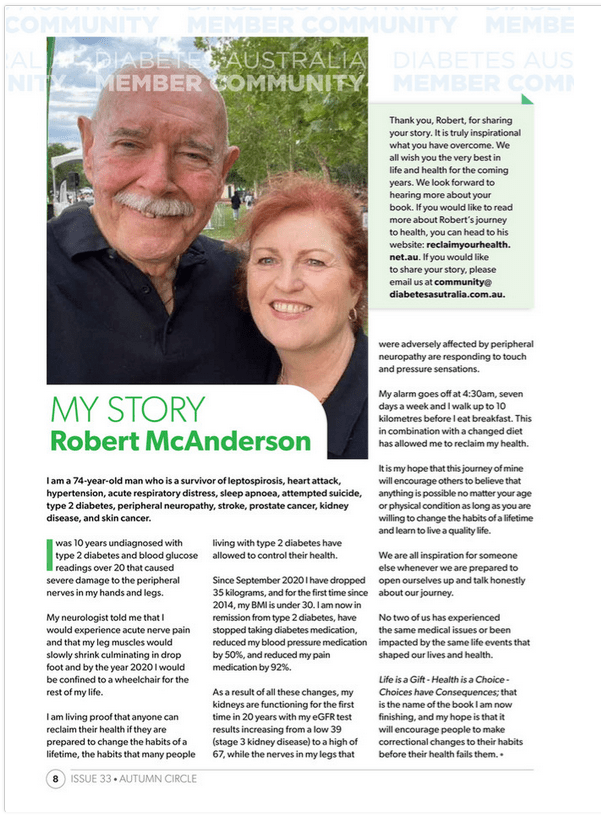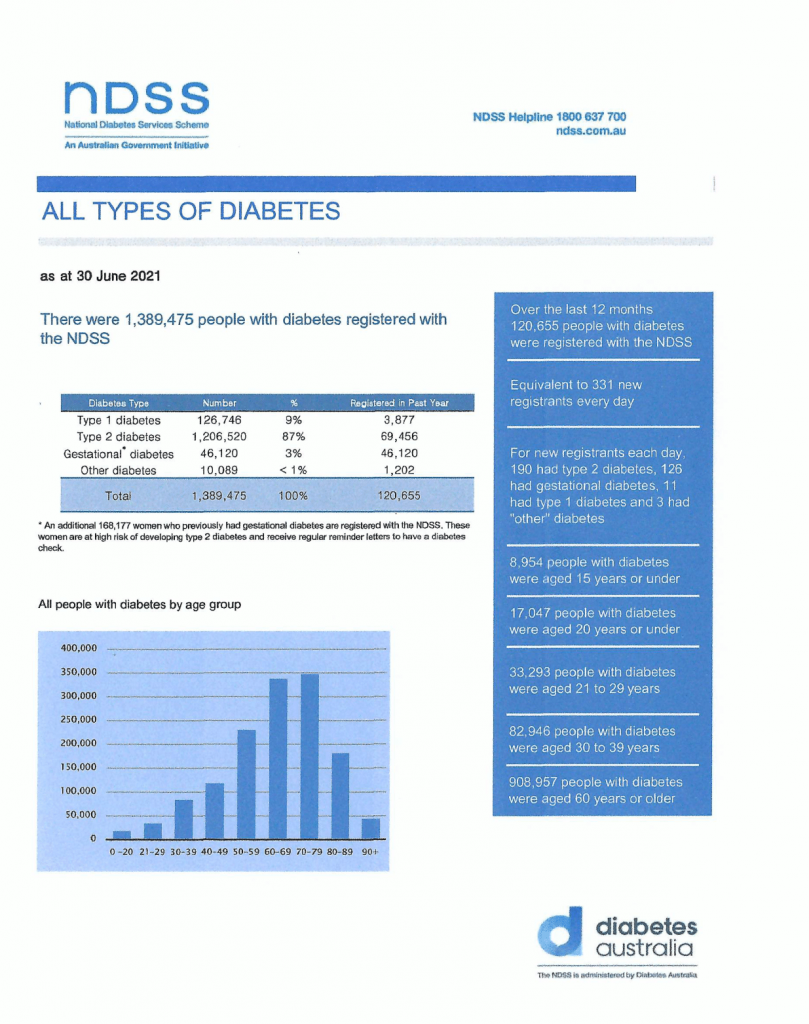Diabetes is a disease that occurs when your blood glucose, also called blood sugar, is too high.

People who have diabetes, their bodies cannot maintain healthy glucose levels in the blood.
As a sufferer of type 2 diabetes, Robert McAnderson struggled with his health for over 30 years and experienced several medical issues that, on three occasions, threatened his life.
Glucose is a form of sugar that is the primary energy source for our bodies, and unhealthy glucose levels can lead to long-term and short-term health complications.
When our bodies work correctly, they convert glucose (sugar) from food into energy.
Insulin is a hormone that is essential for the conversion of glucose into energy.
Diabetics who eat bread, cereals, fruit, starchy vegetables, legumes, milk, yogurt, and sweets cannot convert this glucose into energy because their bodies lack insulin.
Instead of being turned into energy, the glucose stays in the blood, resulting in high blood glucose levels.
Diabetes can be managed well, but the potential complications are the same for types 1 and 2, including heart attack, stroke, kidney disease, limb amputation, depression, anxiety, and blindness.
Diabetes Type 2
Type 2 is the fastest rate because it is more lifestyle-driven than medical.
There are large numbers of people with silent, undiagnosed type 2 diabetes, which may be damaging their bodies.
It has been estimated that over 2 million Australians are at high risk of developing type 2 diabetes and are already showing early signs of the condition.
The massive changes to diet and the food supply, combined with changes to physical activity, more sedentary work and less training, means populations worldwide are seeing more Type 2 diabetes.
Diabetes Type1
Type 2 is caused by an autoimmune reaction (the body mistakenly attacks itself). This reaction destroys the beta cells in the pancreas that make insulin. This process can go on for months or years before any symptoms appear.
For more information on diabetes, please visit NDSS.

[DISPLAY_ULTIMATE_SOCIAL_ICONS]
